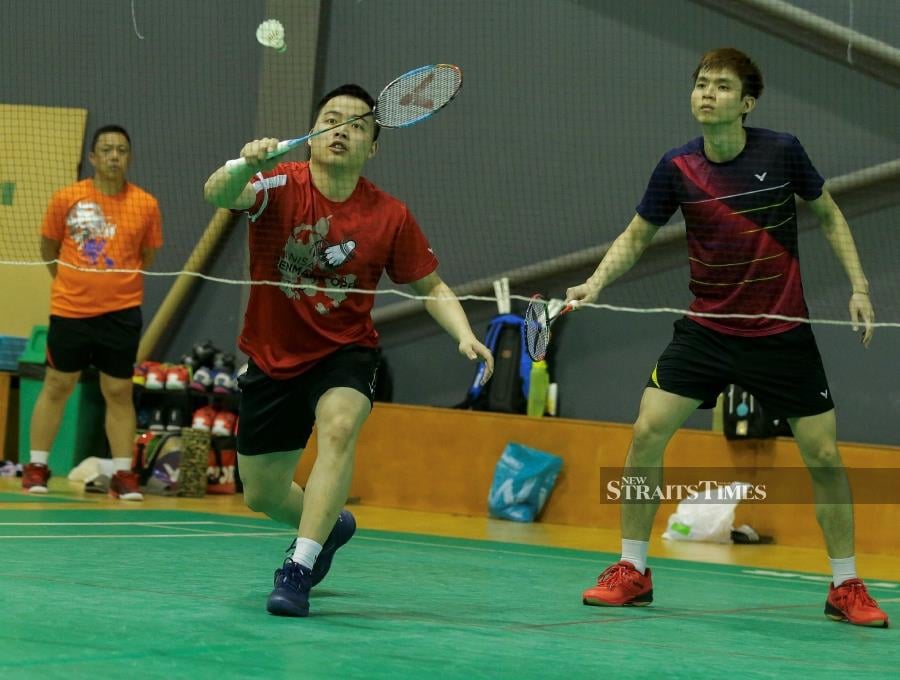HOW low can Malaysian badminton go? While non-traditional badminton nations, Spain and the United States have won world titles, India joined the elite list with their first crown through women’s singles shuttler P.V. Sindhu in Switzerland on Sunday.
Malaysian shuttlers have appeared in eight finals since the inception of the World Championships in 1977 with Lee Chong Wei being the most successful with three appearances, but none made it count.
In total, 11 nations have won world titles in badminton with China being the most successful with 66 gold medals.
Despite having a world-class facility in Bukit Kiara and a handson association in the BA of Malaysia (BAM), national shuttlers just can’t capture badminton’s biggest prize.
Malaysia shuttlers somehow get cold feet whenever it comes to major events.
Following the retirement of Chong Wei, Malaysia are struggling to find a new shuttler who can “rock” world badminton once again.
While badminton is quite big in India through its academy-based initiative, the sport does not even get support and funding in Spain as the No 1 sportin that country is football while the US are focused on American football, baseball and basketball.
But despite the odds, Spain and the US have produced world champions.
Spain’s Carolina Marin is the first woman shuttler to win three world titles.
At the 2016 Rio Olympics, she became the first European woman to win gold in badminton, ending the longstanding domination of Asian players.
The feat was all the more remarkable because Spain has no strong track record in this sport.
Badminton is growing in Spain, no doubt, as the number of licensed players there has increased from 6,000 in 2017 to about 8,000 last year.
In 2005, the US produced a world champion men’s doubles pair in Indonesian-born Tony Gunawan and Howard Bach. But their win did not even get media attention back home as badminton is considered a backyard sport in the US.
But in Malaysia, badminton is already well established among the top two sports in the country.
So, what’s the problem in Malaysian badminton? We have seen many promising shuttlers come and go in the country with some opting to turn professional even before achieving a major success.
Many became big-headed and made unrealistic demands after winning a few top-tier tournaments. Subsequently this affected their performance and they soon disappeared from the scene.
Malaysian shuttlers need to understand that winning is everything as no one remembers the silver or bronze medallist.
We, as Malaysians, tend to get excited when our shuttlers finish No 2 or 3 in a major competition.
Of course, they are commendable achievements, but we shouldn’t go overboard with huge rewards and endorsement deals for them until they win the biggest prize.
There is also an issue between BAM and the others who are not part of the national set-up.
Quite a number of them decided to turn pro as they feel they can earn more this way but most end up struggling.
Although many badminton clubs and academies have come up, there is no good working relationship between them and BAM.
It is hoped that those in the badminton fraternity put their egos aside for the betterment of the sport.
Much as we hate to face reality, badminton is on a decline in the country and something must be done to address it.
As we have all the facilities to turn our players into world beaters, we should be putting our assets to good use.
It’s no use for the powers-thatbe to talk about dropping shuttlers when you do not have good back-up players as rep lacements.
The players, however, must have the desire and heart to succeed.
Chong Wei was not the most talented one when he was a national junior but his desire to succeed turned him into one of the game’s biggest stars.
However, BAM should work harder, from development level, to produce players like Chong Wei, if not better.
The results in Basel are worrying. They show that our players are no longer among the best and this gives the perception that badminton cannot be relied on to deliver medals for Malaysia in next year’s Tokyo Olympics.
It is still a big question whether players like Lee Zia Jia and the others can progress and start winning major events.
To stop the decline, BAM should study all aspects, including sports science, and review their training programmes.






